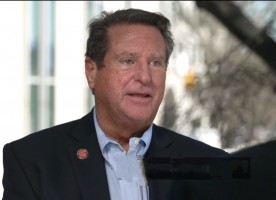P.J. O'Rourke had a knack for using humor to critique politics and government. O’Rourke illustrated the recklessness that can come with unchecked authority with his deep skepticism about the relationship between government and individual freedoms.
One of my favorite O’Rourke quotes is: “Giving money and power to government is like giving whiskey and car keys to teenage boys.” This highlights the absurdities of bureaucracy and the consequences of political power dynamics.
Many citizens believe Governor Bill Lee is indifferent to the possible financial strain created by universal vouchers and their detrimental effects on public schools and our communities in Tennessee. The repercussions extend far beyond just public education. Funding for these universal vouchers will ultimately drain state resources, potentially costing taxpayers roughly $700 million or more annually. The spending on the program will undoubtedly threaten other vital services and programs. Tennessee fell $333 million short of tax projections in Fiscal Year 2023, and Lee's budget anticipates collecting about $719 million less in revenue than initially planned for Fiscal Year 2024.
State leaders are rarely held accountable for failed policies, but the taxpayers end up with the consequences. As Ronald Reagan said, "The most frightening words in the English language are, 'I'm from the government, and I'm here to help.'" He understood that government is often the problem, not the solution.
The Achievement School District (ASD) in Tennessee exemplifies a failed approach to school reform. Many prefer more individualized intervention methods. Despite spending over a billion dollars since its creation in 2010 as part of Tennessee’s Race to the Top plan, the ASD has not successfully turned around low-performing schools. It made them worse.
You will hear comments like “School choice is on the ballot in the coming days.” You will not hear the term “universal voucher” coming out of the mouths of those pushing universal vouchers. One basic rule of politics is that when buying and selling are controlled by legislation, legislators are the first things to be bought and sold. Align political donations with how people vote; you will almost always find a correlation.
Private schools were created to be independent and funded by families who chose them. There are some great private schools within Tennessee, as there are incredible public schools across the state. If private schools receive public funding, they should meet the same standards as public schools, such as requiring educators to hold at least a bachelor's degree in their subject area. However, private school educators may not need a degree with proposed universal vouchers.
We identified flaws in Governor Lee’s voucher program, including a lack of affordable private schools and transportation issues affecting low-income families. Most private school tuition exceeds the voucher amount. If Governor Lee can rally enough votes, Tennessee taxpayers will foot the bill for his universal voucher lobbyists and private schools across the state.
The Tennessee Constitution requires the General Assembly to provide for the maintenance, support, and eligibility standards of a system of free public schools. We advocate for expanding public school choice options, including magnet schools, career academies, and open enrollment policies. Public schools should collaborate more with businesses and nonprofit organizations and actively involve homeschooling families. This can include allowing their children to participate in regular classes and vocational programs at their designated or nearby schools.
Many states have open enrollment policies that permit school districts to offer various options, such as magnet schools, charter schools, Advanced Placement (AP) Programs, International Baccalaureate (IB) Diploma Programs, and dual enrollment opportunities. These options should be further expanded. So, the issue is not about school choice; it has never been about school choice. It is about subsidizing private schools with taxpayer dollars.
Governor Lee never acknowledged that universal vouchers may hurt public schools and other choice options. Policymakers should remember that you can change the zip code where a child attends a school, but they are not changing the home address. You will not address the real issues until you address the impact of factors outside the classroom on student achievement. This is an ongoing debate, but we must get it right, given this issue's critical and costly nature.
The Tennessee Department of Education is facing a challenge: it needs to fill critical positions to effectively serve parents, students, educators, and school districts. With many employees working remotely, there are concerns about oversight and effectiveness. How will the department manage a $700 million annual program long-term? This should be addressed early in the discussion.
As P. J. O’Rourke noted, “It is a popular delusion that the government wastes vast amounts of money through inefficiency and sloth; significant effort is required to waste this much money.” We may be about to find out if universal vouchers become law in Tennessee.
##
JC Bowman is the executive director of Professional Educators of Tennessee.











